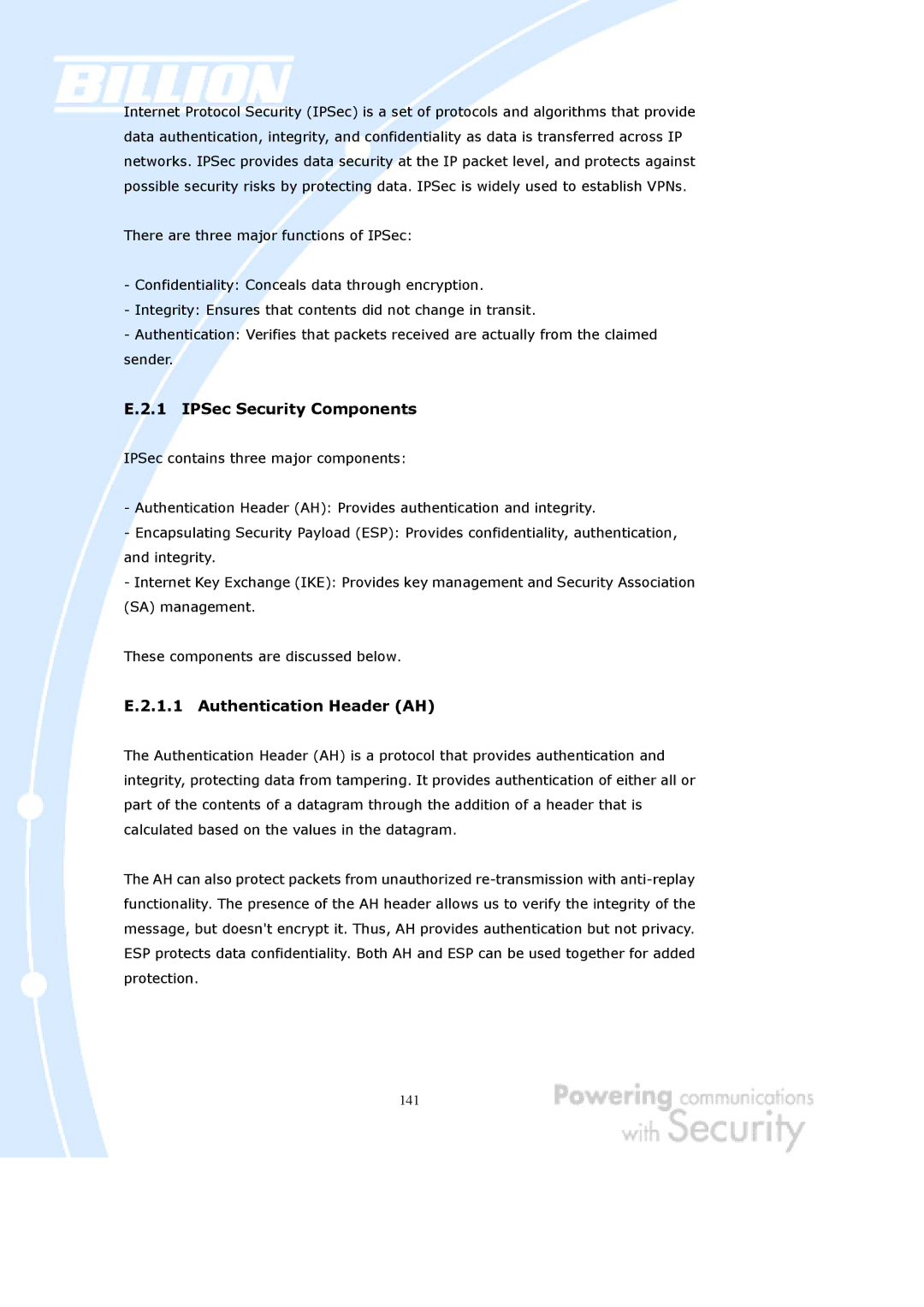
Internet Protocol Security (IPSec) is a set of protocols and algorithms that provide data authentication, integrity, and confidentiality as data is transferred across IP networks. IPSec provides data security at the IP packet level, and protects against possible security risks by protecting data. IPSec is widely used to establish VPNs.
There are three major functions of IPSec:
-Confidentiality: Conceals data through encryption.
-Integrity: Ensures that contents did not change in transit.
-Authentication: Verifies that packets received are actually from the claimed sender.
E.2.1 IPSec Security Components
IPSec contains three major components:
-Authentication Header (AH): Provides authentication and integrity.
-Encapsulating Security Payload (ESP): Provides confidentiality, authentication, and integrity.
-Internet Key Exchange (IKE): Provides key management and Security Association (SA) management.
These components are discussed below.
E.2.1.1 Authentication Header (AH)
The Authentication Header (AH) is a protocol that provides authentication and integrity, protecting data from tampering. It provides authentication of either all or part of the contents of a datagram through the addition of a header that is calculated based on the values in the datagram.
The AH can also protect packets from unauthorized
141
